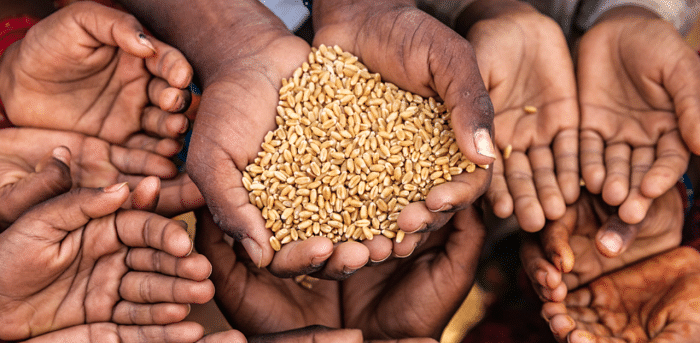
Centre set to miss the March 2021 target for ‘one nation, one ration card’ as four states – West Bengal, Assam, Chhattisgarh, Delhi – were yet to come on board the initiative that seeks to provide beneficiaries access to their entitled foodgrains anywhere in the country.
As many as 32 states and union territories have joined the initiative that picked up steam during the Covid-19 lockdown months which saw more than 15 crore portability transactions, indicating that persons having ration cards in their hometowns had claimed entitled foodgrains from other towns and cities.
In West Bengal and Delhi, the delays over the integration of Aadhar seeded ration cards with point of sale (POS) machines available at fair price shops, while Chhattisgarh was still in the process of procuring POS machines.
In Assam, the Unique Identification Authority of India was struggling to link Aadhaar cards with ration cards, leading to a delay in rollout of the scheme.
“Aadhaar seeding is low in Assam at 30 per cent and the UIDAI is working closely with the government there,” Sudhanshu Pandey, Secretary, Department of Food and Public Distribution, said.
Since its rollout in August 2019, the ‘one nation, one ration card’ (ONORC) scheme has witnessed 23.3 crore transaction of which 15.4 crore took place between April 2020 and February 2021.
The initiative was also rolled out swiftly during the Covid-19 pandemic with the number of states covered rising from 12 in April 2020 to 32 states & UTs in December 2020.
Almost 86 per cent of the beneficiaries under the National Food Security Act or 69 crore persons have been covered under the ONORC scheme.
“On average, each month has been recording 1.5 crore to 1.6 crore portability transactions,” S Jagannathan, Joint Secretary, Department of Food and Public Distribution said.
The ONORC scheme allows the holder of a ration card to claim part of the full entitlement of foodgrains from any fair price shop in the country, an initiative targeted at helping migrant workers
